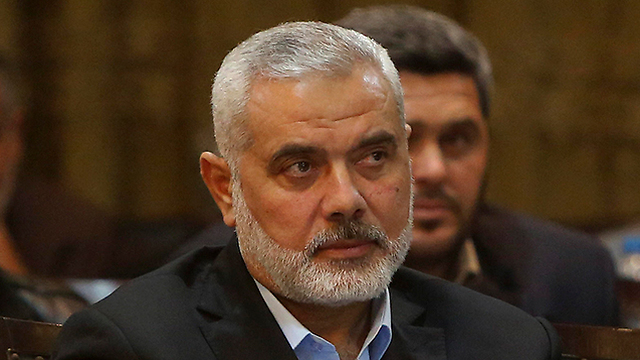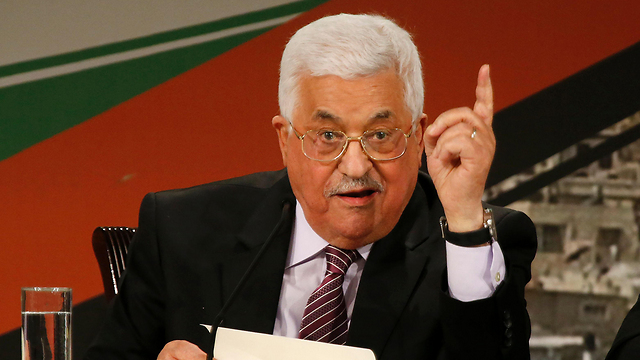

Hamas announces dismantling of Gaza administrative committee
The committee, effectively acting as government in Gaza Strip, will be dismantled amid efforts to promote Palestinian reconciliation; Hamas also accepts holding new general elections; announcement comes following heated Egyptian mediation efforts, marathon talks with Hamas and PLO delegations; Abbas keeps word, announces end to sanctions.
The committee, as sort of shadow government in Gaza, was the reason Palestinian President Mahmoud Abbas imposed harsh sanctions on the Gaza-based organization—chiefly among them ceasing to pay for Israel's power supply to the Strip and cutting wages for Gazan government officials among other things.
These sanctions—taken together with the cessation of diesel fuel supply from the PA to the Strip's sole power station—led to a power crisis in Gaza.
Hamas announced its decision to dismantle the committee administrating the Gaza Strip came in response to Egyptian efforts to mediate the conflagration between the Palestinian factions.
The organization then called on the Palestinian unity government in Ramallah to exercise its power in the Strip immediately, and to fulfill its tasks there as well—after a full decade of severed ties.
"We call for the creation of a national unity government as part of a dialogue in which all Palestinian factions will participate," the Hamas announcement said. "We are willing to accept the Egyptian plea for dialogue with Fatah regarding a mechanism for implementation of the 2011 Cairo agreement," referring to an inter-Palestinian reconciliation agreement.
Hamas also used the announcement to thank Egypt for its "generous mediation efforts," which endeavored to "achieve national unity."
A high-ranking delegation of Hamas officials has been in Cairo for a week, headed by the organization's heads from both Gaza and abroad, namely Hamas senior political leader Ismail Haniyeh and Gaza Prime Minister Yahya Sinwar.
The delegation was already expected back in the Strip, but postponed its return due to Egyptian intelligence's efforts to broker the end of the conflict.
Several days ago, it was joined in Cairo by a Fatah delegation—also there by Egyptian invitation—in order to resolve the conflict over the Gaza Strip's administrative committee.
The Fatah delegation to the talks includes senior figures such as Azzam al-Ahmad, who was tasked with achieving reconciliation with Hamas, and Hussein al-Sheikh. They met with Egyptian intelligence for eight hours Saturday.
Senior Fatah leader Mahmoud Aloul welcomed the Hamas move on Sunday, but told Voice of Palestine radio that "we want to see that happening on the ground before we move to the next step."
The Hamas-Fatah split originated in 2007, and the two sides have been unsuccessfully attempting reconciliation since.
Fatah has yet to comment on this announcement. Following the decision, however, Abbas is expected to resume power supply to Gaza, transfer the entirety of the money owned to Gazan government officials, to abort the early retirement scheme for certain Strip officials and to vow to allow patients transfer to Israeli or West Bank hospitals.
Abbas seems to be making good on his promise, made several times recently, to cease sanctions once the contentious administrative committee is dismantled.
The Associated Press contributed to this report.


















